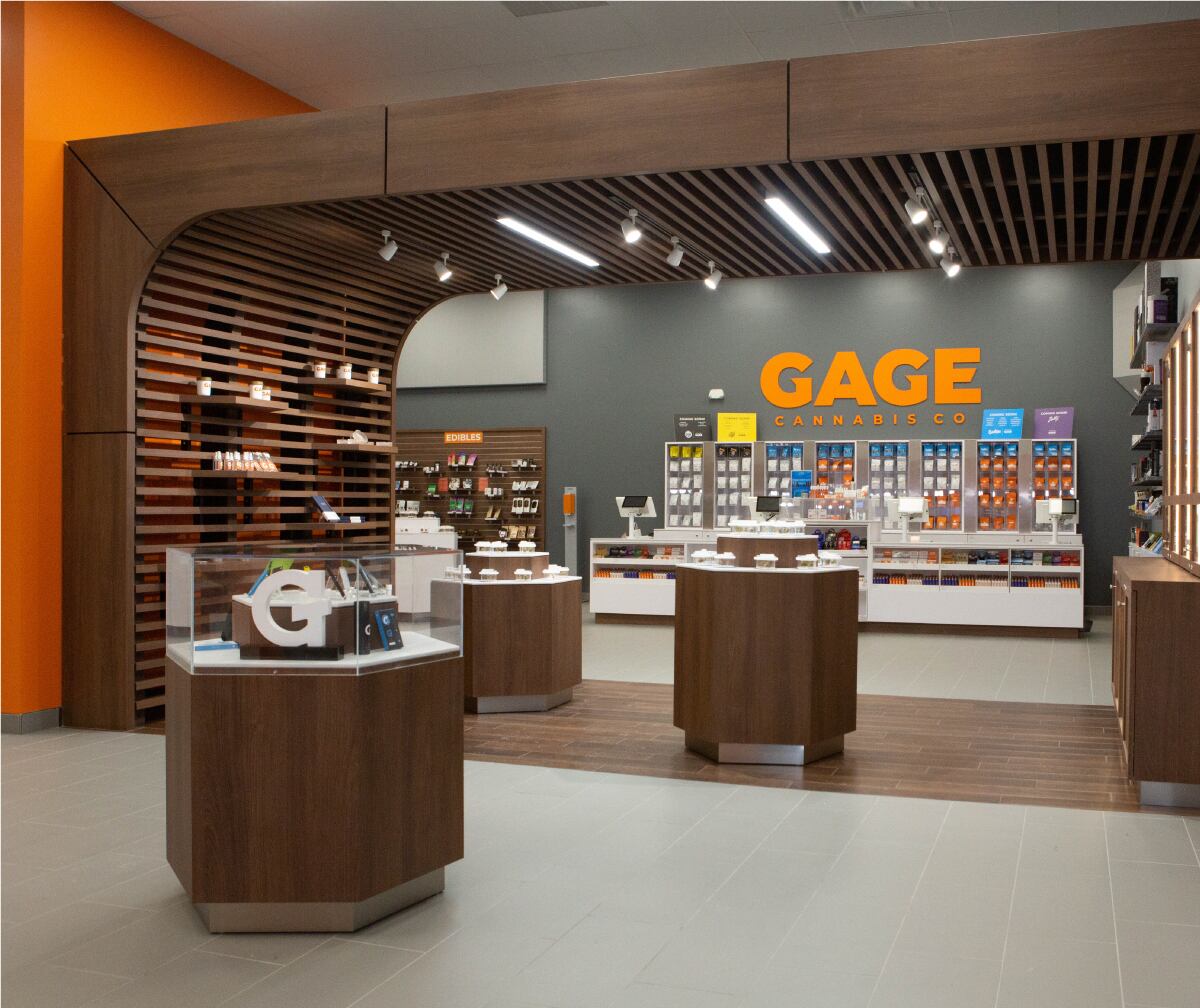Michigan-based pot producer Gage Cannabis hopes to raise $50 million dollars to shore up its market share in the Mitten State. Gage is offering more than 28.5 million shares to investors at $1.75 each through its Regulation A equity financing round.
The company’s executive chairman Bruce Linton, also co-founder and former CEO of Canopy Growth, was the first and lead investor in the offering.
“I'm in on this. I believe doing it really right in Michigan sets up all kinds of growth in Michigan and potential everywhere else,” Linton told Cheddar.
Gage Cannabis is a vertically-integrated cannabis producer that operates five dispensaries, called provisioning centers in Michigan, and plans to open three more by the end of 2020. It produces its own suite of Gage-branded cannabis products and is the exclusive retailer and producer of popular brands like Cookies in its home market. Gage actually operates Cookies-branded shops in Michigan.

“We have strategically acquired a portfolio of high-quality operating assets and brands in the rapidly growing Michigan market and developed a reputation for providing consumers with access to craft cannabis in elevated retail environments,” Fabian Monaco, president of Gage Cannabis, said in a statement. “This is a great first step in our journey to becoming a publicly-traded company and we’re excited to continue to build on our strong foundation while delivering long-term shareholder value.”
Michigan voters approved adult-use cannabis legalization in November 2018 and sales kicked off in December 2019. But the months to follow were turbulent, plagued by supply shortages and licensing and testing bottlenecks, prompting one industry insider to call it a model of how not to roll out legal cannabis, according to MLive. Marijuana Business Daily estimates Michigan’s adult use cannabis sales will fall between $400 million and $475 million in 2020.
Not one to be discouraged, Linton called Michigan’s nascent market “as exciting or more exciting than Florida,” referring to the southern state’s rapidly-growing medical market.
“The way the Gage guys set it up is they made sure they thought about the vertical stack of growing great product, processing it ... and then having it visible within really a short distance to 90 percent of the population of Michigan,” Linton said. “These guys are in a position to be the leaders in Michigan.”
Gage plans to use the proceeds from its offering to continue to expand to more retail locations across Michigan with the goal of building a dominant market share there. But the company has bigger aspirations, as well. Linton said Gage would consider expanding to other states once it establishes a strong foundation in a single market.

As for the Regulation A offering, Linton said it builds loyalty among investors, while also paving the way to additional listings, like a potential initial public offering.
“We could build momentum letting people in early and the path, then, to listing in Canada, I think, would be well understood and clear,” Linton said. “Do we have certainty that we'll do it in the timeframe? No, but you could imagine that you might want to consider all your options, and that would be a good one.”













